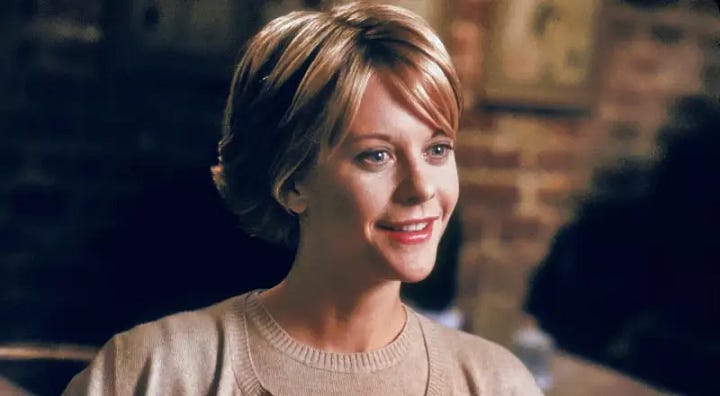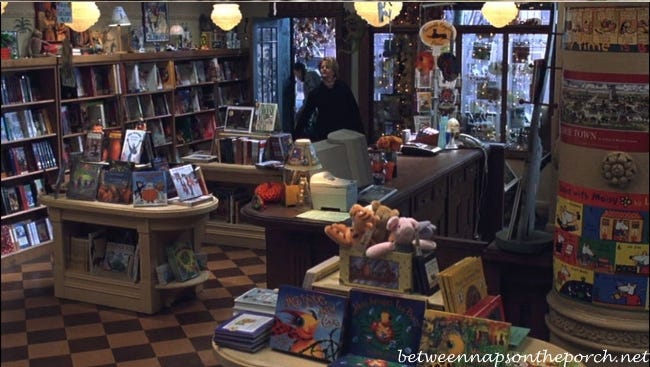"You've Got Mail" Review
And so begins the fall rom-com season


“What will NY152 say today, I wonder. I turn on my computer. I wait impatiently as it connects. I go online, and my breath catches in my chest until I hear three little words: You've got mail. I hear nothing. Not even a sound on the streets of New York, just the beating of my own heart. I have mail. From you.”
This monologue from Meg Ryan’s character Kathleen Kelly sets up the world of You’ve Got Mail perfectly. It is charming, earnest, and even silly. Kathleen and Joe— portrayed by Tom Hanks— enter an anonymous online correspondence, not knowing that they are professional rivals. Kathleen owns a children’s book store, and Joe’s family owns the big, bad chain bookstore. Inevitably, they fall in love.
However, my favorite parts of this movie are admittedly not the romance. As a movie shot entirely on the Upper West Side of Manhattan and all about book stores, each shot is imbued with the bookishly trendy sentiments of its characters. Kathleen’s apartment is filled with trinkets, quilts, flowers, and natural light. And of course, it is filled to the brim with books.
Her character informs the entire film’s personality. It is Kathleen who delivers the quotes that define its ethos, including my favorite upon this rewatch:
“Whatever else anything is, it ought to begin my being personal.”
That earnest passion is at the core of this movie. The love story is fun, but the warmth in the characters keeps audiences coming back. I find myself drawn to the story of a woman fighting to maintain her own passion and her mother’s memory through this bookstore, then learning how to find a new passion and believe in herself.
When Kathleen is forced to start over, her character feels the most relatable. She faces that setback with more grace than most, but the audience does feel her pain. At that point, she gives another one of my favorite quotes:
“Some foolish person, will probably think it's a tribute to this city, the way it keeps changing on you, the way you can never count on it, or something. I know because that's the sort of thing I'm always saying. But the truth is, I'm heartbroken. I feel as if a part of me has died, and my mother has died all over again, and no one can ever make it right.”
That vulnerability makes it all the more uplifting when Kathleen decides to start writing her own children’s books. She finds pleasure in her new life and new ways to honor her mother. This arc is displayed perfectly by the seasons changing throughout the movie. It begins in early fall when everything is warm, cozy, and beautiful. As Kathleen’s business and love life go awry, we transition into winter. The shots are darker and farther away. Finally, her newfound success and happiness are greeted by a colorful spring.
Of course, this arc is accompanied by a romantic arc. But honestly, I don’t even want to address that. Tom Hanks does a great performance as Joe Fox, but his character feels flat compared to the full of life and love Kathleen. The ending is sweet, but it feels less genuine than the rest of the movie.
We should remember Kathleen’s happy ending as learning who she is and what she stands for. You’ve Got Mail is her story. Sure, Joe can be there too… but I think our Shopgirl Kathleen would be happy either way.


